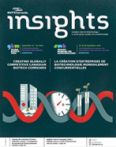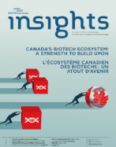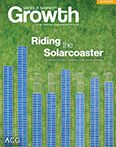FDA’s Emergency Use Authorization: A Rapid & Effective Path to Market for COVID-19 Diagnostic Tests
Background
National Health Authorities regulating in vitro diagnostic tests have responded to the COVID-19 pandemic by lowering barriers to market entry in order to increase access to testing. In the United States, the Food and Drug Administration (FDA) has employed the Emergency Use Authorization (EUA) pathway to expedite the review of SARS-COV-2 in vitro diagnostic tests.
Emergency Use Authorization of specific medical products is permitted by section 564 of the Federal Food, Drug and Cosmetic Act (FD&C Act). Section 564 allows the FDA Commissioner to authorize the use of unapproved medical products, and approved medical products, for off-label use in an emergency to diagnose, treat, or prevent serious or life-threatening conditions1. EUA’s specifically strengthen the United States public health against Chemical, Biological, Radiological and Nuclear threats (CBRN) by increasing access to Medical Counter Measures (MCM)2.
On February 4th, 2020, the Secretary of Health and Human Services (HHS) issued a determination of a public health emergency. The determination stated that circumstances exist to permit the authorization of emergency use of in vitro diagnostics for detection and/or diagnosis of the novel coronavirus (2019-nCoV) pursuant to section 564 of the FD&C Act3. Following the determination, FDA issued the guidance document, Policy for Diagnostic Tests for Coronavirus Disease-2019 during the Public Health Emergency Immediately in Effect Guidance for Clinical Laboratories, Commercial Manufacturers, and Food and Drug Administration Staff on March 16, 2020. This guidance document details the requirements for clinical labs and manufacturers of in vitro diagnostic tests seeking EUA.
Molecular Test Regulatory Pathway
Due to the exigencies of the current global pandemic, FDA is allowing manufacturers to commercially distribute their molecular tests prior to EUA if performance validation is completed and meets FDA’s minimum testing recommendations.
Molecular test manufacturers with completed performance validation intending to distribute their test must notify FDA via email to CDRH-EUA-Templates@FDA.HHS.GOV. Notification should include:
• Name of the manufacturer
• Address
• Contact person
• Instructions for use
• Summary of assay performance
Following notification, manufacturers are required to post labeling and performance data on their website and submit an EUA application using the template provided by FDA within 15 business days. The Test Kit Manufacturer: EUA Template is intended to facilitate the preparation and submission of an EUA.
It is critical that manufacturers ensure their performance validation meets the minimum recommendations laid out in Section V of the policy guidance document. After receiving an EUA application, FDA performs a preliminary review of the submitted performance data to identify any problems. If the issues are minor, FDA will work interactively with the manufacturer to address the problem. However, if the problem is significant and cannot be addressed in a timely manner, the manufacturer must suspend distribution and conduct a recall of the distributed test4. FDA is urging manufacturers with alternative approaches to validation to engage the agency in pre-EUA discussions to request feedback.
Validation Recommendations
FDA provides minimum validation testing recommendations in the COVID-19 Policy Guidance Document based on the underlying technological principles of the test. Recommended studies for molecular tests include:
Molecular Based Tests
- Limit of Detection (LoD)
- Sample Type: Contrived samples using artificial or real clinical matrix spiked with RNA or inactivated virus
- Replicates: Dilution Series of 3 replicates per concentration; confirmation of final concentration with 20 replicates
- Acceptance Criteria: Lowest concentration with 19/20 positive replicates
- Clinical Evaluation
- Sample Type: Positive samples or contrived clinical specimens using RNA or inactivated virus spiked into leftover clinical specimens
- Replicates: 30 contrived reactive specimens and 30 contrived non-reactive specimens; 20 specimens spiked at 1-2x LoD with the remainder spanning the assay testing range
- Acceptance Criteria: 95% agreement at 1-2x LoD and 100% agreement at all other concentrations and for negative specimens
- Inclusivity
- Sample Type: In silico analysis of percent identity match against publicly available SARS-COV-2 sequences
- Acceptance Criteria: 100% of published SARS-COV-2 sequences detected by primers and probes
- Cross Reactivity
- Sample Type: In silico analysis of common respiratory flora and other viral pathogens
- Acceptance Criteria: Less than 80% homology between target primers/probes and any sequence in the targeted microorganism
Antigen Test Regulatory Pathway
Antigen based tests follow the same EUA pathway and generally have similar requirements as molecular tests.
Antigen Based Test Validation
- Limit of Detection/Analytical Sensitivity
- Cross-reactivity/Analytical Specificity
- Microbial Interference
- Clinical Agreement Study
- Sample Type: Remnant human specimens from patients with or without SARS-COV-2 infection; if positive human specimens cannot be obtained, spike leftover specimens with SARS-COV-2 RNA or inactivated virus
- Additional Guidance: Use the most challenging clinical matrix for validation studies
Serological Diagnostics Regulatory Pathway
Unlike molecular tests, antibody-based tests have two pathways to distribution during the emergency declaration: Notification and EUA. FDA has indicated that EUA application is appropriate for tests seeking a sole diagnosis claim, while notification is appropriate for tests with a qualitative IgG or IgM claim5. The EUA pathway has similar requirements to a molecular test EUA. Additional detail can be found on FDA FAQ Website6 and associated guidance documents.
Manufacturers with validated serology tests not seeking an infection or sole diagnosis claim should notify FDA that they intend to distribute their validated test by emailing CDRH-EUA-Templates@FDA.HHS.GOV with the subject line, ANTIBODY TEST NOTIFICATION.
This notification should include:
- Name of the manufacturer
- Address
- Contact person
- Instructions for use
- Summary of assay performance
Once FDA acknowledges receipt, manufacturers must register their establishment and list the serology device under product code QKO. “Enforcement” should be used under the submission number field. Products requiring importation require registration and listing information.
Recently FDA announced an interagency collaboration involving the National Institutes of Health (NIH), the Centers for Disease Control and Prevention (CDC), and the Biomedical Advanced Research and Development Authority (BARDA) to independently evaluate the performance of serology tests offered under the policies described in the COVID-19 Guidance document6. Serology test manufacturers can submit their tests to NIH for evaluation using positive and negative plasma and serum samples. Manufacturers interested in the project should send an email to mailto:CDRH-OIR-POPS@fda.hhs.gov.
The following information should be included in the email:
- Manufacturer and test name as provided in your notification to FDA,
- Volume of tests currently available to distribute in the United States,
- Weekly production volume available to distribute in the United States,
- Test technology,
- Sample type, and
- Pre-EUA (PEUA) or EUA number if applicable
Validation Recommendations
FDA provides minimum validation testing recommendations in the policy guidance document based on the underlying technological principles of the test. Recommended studies for serological tests include:
Serological (Antibody) Based tests
- Cross-reactivity/Analytical Specificity
- Class Specificity
- Required if your test distinguishes between IgG and IgM
- Clinical Agreement Study
- Sample Type: Human specimens from patients with microbiologically confirmed COVID-19 infection
Labeling Limitations:
Specific limitations are required to be included in test labeling and vary according to test type and specific feedback from FDA. For example, FDA states that serological tests should include the following limitations in the instructions for use:
- This test has not been reviewed by the FDA.
- Negative results do not rule out SARS-CoV-2 infection, particularly in those who have been in contact with the virus. Follow-up testing with a molecular diagnostic should be considered to rule out infection in these individuals.
- Results from antibody testing should not be used as the sole basis to diagnose or exclude SARS-CoV-2 infection or to inform infection status.
- Positive results may be due to past or present infection with non-SARS-CoV-2 coronavirus strains, such as coronavirus HKU1, NL63, OC43, or 229E.
Additional Resources
FDA has provided a variety of resources in addition to the COVID-19 Policy Guidance Document. These resources are listed below.
Frequently Asked Questions
As noted above, there is FAQ page on Diagnostic Testing for SARS-CoV-2 under the Emergency Situations section of FDA.gov7. This section provides clarity and additional detail on policies described in the COVID-19 Policy Guidance Document and is being updated continuously as new information emerges.
FDA Town Hall Series
FDA launched a series of interactive webinars titled the Virtual Town Hall Series - Immediately in Effect Guidance on Coronavirus (COVID-19) Diagnostic Tests on March 25. The town hall discussions feature updates and clarification on the COVID-19 policy guidance for diagnostic tests with a significant portion of time allotted for stakeholder Q & A. Previous discussions are archived under Workshops & Conferences section of FDA.Gov8. Two more town hall discussions are scheduled for April 22nd and 29th, 2020 at 12:15 pm – 1:15 pm Eastern Time.
Pre-EUA
FDA laid out their recommendations for validation in the COVID-19 Policy Guidance Document. However, these are recommendations and not requirements. FDA is encouraging manufacturers with alternative approaches to validation and novel technological approaches, such as extraction methods that have not been previously reviewed by the agency, to seek feedback and advice by submitting a pre-EUA. To submit a pre-EUA, FDA recommends submitting a draft EUA review template with information you currently have for your IVD test, a completed FDA form-3514, and a cover letter to CDRH-EUA-Templates@FDA.HHS.GOV8.
FDA Hotline
FDA is staffing a toll-free 24-hour hotline for industry questions specific to COVID-19 Diagnostic Tests at 1-888-INFO-FDA, select option *. This hotline can be useful for general information but questions specific to your diagnostic test are better suited for the CDRH-EUA-Templates@FDA.HHS.GOV email address.
Authorized Tests
FDA maintains a current lists of in vitro diagnostic tests authorized through the EUA pathway at https://www.fda.gov/medical-devices/emergency-situations-medical-devices/emergency-use-authorizations#covid19ivd.
Listed Test
Currently listed SARS-COV-2 serology tests are available through the device establishment registration and listing database by searching product code QKO.
https://www.accessdata.fda.gov/scripts/cdrh/cfdocs/cfRL/rl.cfm
Conclusions
FDA has done an exceptional job expediting the EUA process while continuing to monitor the safety and efficacy of the SARS-COV-2 diagnostics coming to market. Test manufacturers can do their part by submitting complete EUA applications incorporating the guidance provided by FDA. Novateur Ventures, Inc. can assist with in vitro diagnostic test EUA applications or notifications. For more information please contact us at https://www.novateur.ca/contact/.
References:
-
FDA Antibody Test Additional Information provide through CDRH-EUA-Templates@FDA.HHS.



